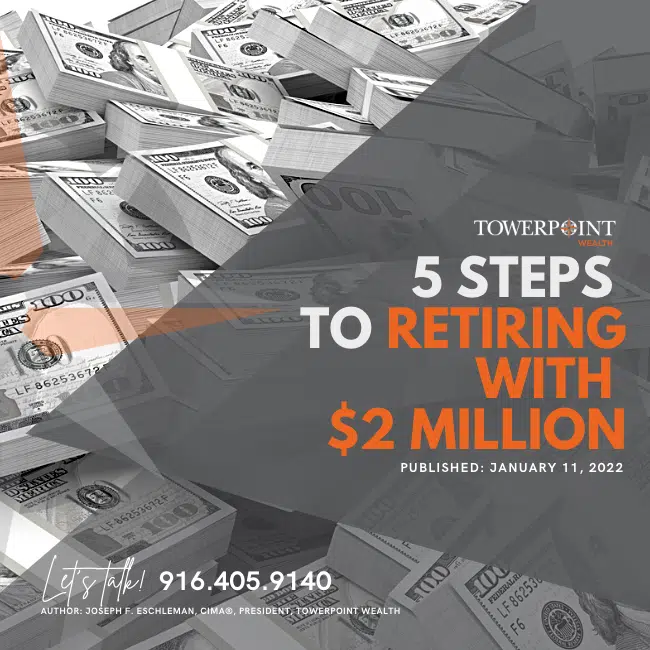Deciding when do I apply for Social Security benefits is one of the most important retirement decisions you’ll make. The timing you choose affects not only your monthly benefits but also tax consequences, longevity risk, and your overall retirement planning strategy. For high‑net‑worth clients, business owners, and professionals considering wealth transitions, the decision is especially consequential. At Towerpoint Wealth we see Social Security not as an isolated check but as a critical pillar in a coordinated wealth management framework.
Understanding the Basics of Social Security Timing

Eligibility Overview
To collect social security retirement benefits, you must earn social security credits, typically 40 credits, which is about 10 years of work. The earliest you can apply for Social Security is age 62. At that point you become eligible to start receiving benefits, albeit at a reduced benefit amount when compared to waiting until full retirement age.
Full Retirement Age by Birth Year
Your full retirement age is the age at which you are entitled to your full benefits (no reduction for early claiming). For those born in 1960 or later, that age is 67. For those born earlier, the FRA is between 66 and 66 + 10 months depending on birth year. If you claim social security retirement benefits before your full retirement age, your social security benefit is permanently reduced. Delaying beyond that age accrues delayed retirement credits.
Early vs Delayed Claiming: What’s the Difference?
If you start collecting social security at age 62, your retirement benefits can be approximately 25–30 percent lower than the maximum benefit at full retirement age, depending on your birth year. These early benefits come with a permanent reduction. By contrast, if you delay taking Social Security beyond full retirement age (up to age 70), your monthly benefits can grow by about 8 percent a year (through delayed retirement credits). The trade‑off is you collect over a longer period at a lower rate vs wait and collect over a shorter period at a higher rate.
When to Apply for Social Security Benefits

Application Timeline
You can apply for Social Security benefits up to four months before the month you want them to begin. The Social Security Administration allows you to apply online through a secure social security account, by phone, or in person at a local Social Security office or social security offices nationwide. Processing typically takes a few months. Be sure to have required documentation on hand such as your original birth certificate, Social Security number, tax return records, and military service papers if applicable.
Why Your Application Timing Matters
If you delay initiating your social security benefit, you may lose months of potential payments. Additionally, the Social Security Administration’s rules limit retroactive or back pay to six months under most circumstances, and only when you’ve reached full retirement age. So if you miss the optimal window to start benefits, you may not be able to recover lost payments.
Your benefit amount and first Social Security payments depend on your application timing. Also, Social Security pays benefits on a schedule: typically the second, third, or fourth Wednesday of the month, based on your birth date. For example, if your birthday falls in the first 10 days of the month, you can expect payments on the second Wednesday of the following month; birthdays between the 11th and 20th receive payments on the third Wednesday, and those born after the 21st receive payments on the fourth Wednesday. This means the exact date you are paid depends on a different date related to your birth month, not just your birthday.
Strategic Claiming Considerations for High‑Earners

The Impact of Continued Work on Your Benefit
If you collect Social Security before your full retirement age while still working, the Social Security Administration’s earnings test may reduce your monthly benefits. In 2025, if you are under full retirement age for the entire year, you can earn up to $23,400 in payroll tax-covered earnings before deductions begin. For every $2 above that amount, $1 is withheld from your benefit. In the year you reach full retirement age, a higher earnings limit applies, $62,160 in 2025, before withholding begins, and the rule becomes $1 in benefits withheld for every $3 earned above the limit. Once you reach full retirement age, there is no earnings limit. Any withheld benefits are not lost forever; the SSA recalculates your benefit at full retirement age to credit the withheld amounts.
Coordinating Spousal and Survivor Benefits
Married couples and surviving spouses should coordinate timing to maximize household income. The spouse with the higher work history might delay claiming to increase the survivor benefit. A lower‑earning spouse may elect to claim a spouse’s benefit (up to 50 percent of the other’s benefit at full retirement age) depending on relative earnings and timing.
Divorced spouses may also qualify for survivor benefits or spousal benefits if certain conditions are met (for example, the marriage lasted 10 years and the claimant remains unmarried). These benefits interact with your decision about when to begin receiving benefits and can influence the optimal timing for each spouse. Survivors insurance benefits are also a key consideration for surviving spouses.
Taxes on Social Security for High‑Income Retirees
High‑income retirees may face taxation on up to 85 percent of their social security retirement benefits. The SSA uses a formula based on your combined income (adjusted gross income + nontaxable interest + half of your social security benefit) to determine how much of your benefit is taxable.
In 2025, new legislation (the Social Security Fairness Act) reduces the tax burden for many beneficiaries by eliminating or reducing federal income taxes on Social Security for most. That change underscores how tax rules and timing of collecting social security should align with your broader tax plan under your wealth management strategy.
When Should You Apply? A Personalized Approach

Questions to Ask Before Deciding
There’s no universal answer to when to apply for Social Security benefits. Ask yourself:
• Do you need the cash flow immediately, or can your portfolio support you?
• What is your health outlook and life expectancy? Those with poor health may benefit from earlier claiming.
• Will you continue working post‑62, and how will earnings affect your benefit?
• Can you synchronize spousal or survivor strategies?
• How will your benefit amount interact with taxes, portfolios, and other income streams?
Common Scenarios & Decision Paths
- If you’re still working at 62 and have no pressing income need, delaying Social Security generally makes sense to maximize your benefit and avoid the earnings test.
- If you retire around age 65 and need income before Medicare, beginning benefits earlier might bridge the gap, but must be weighed against reduced long‑term income.
- For a high net worth individual with few income needs, waiting until age 70 often yields the maximum benefit, which may offer more stable guaranteed income over your lifetime.
How a Fiduciary Financial Advisor Can Help
At Towerpoint Wealth, we approach retirement planning holistically. Industry experts and fiduciary advisors can help you model multiple claiming ages, integrate social security payments with portfolio drawdowns, and optimize tax timing. We consider your entire financial picture, not just the retirement benefits component, to guide you toward a confident decision on when to begin receiving benefits or collect benefits.
FAQs About Applying for Social Security Benefits
Can I apply while I’m still working?
Yes. You may apply for Social Security while working. You can easily apply online through the Social Security Administration’s online application system or visit a local office. But if you begin collecting benefits before full retirement age, your benefits might be reduced under the earnings test.
What documents do I need to apply?
You will generally need your Social Security number, original birth certificate, tax return records (W‑2, self‑employment), military service papers, and banking/direct deposit info.
Can I change my mind after applying?
Yes. Within 12 months of first receiving social security payments, you can withdraw your application and repay all benefits received, effectively resetting your start date.
What if I apply late, will I get back pay?
Retroactive payments are typically limited to six months, and only if you have already attained full retirement age. Missing your ideal window may mean permanently foregoing that lost income.
How does divorce or remarriage affect eligibility?
If you were married for at least 10 years and are currently unmarried, you may qualify for a spouse’s benefit or survivor benefits based on your ex‑spouse’s record. Remarriage may affect eligibility for survivor or spousal benefits in some cases. Unmarried children may also be eligible for benefits under certain circumstances.
Final Thoughts: Making the Right Decision for Your Financial Future
Choosing when do I apply for Social Security benefits is not simply a matter of age, it’s a strategic decision embedded in your broader retirement and wealth plan. Whether you prioritize higher lifetime income, tax optimization, spousal coordination, or legacy goals, the timing you select will ripple through every pillar of your retirement.




